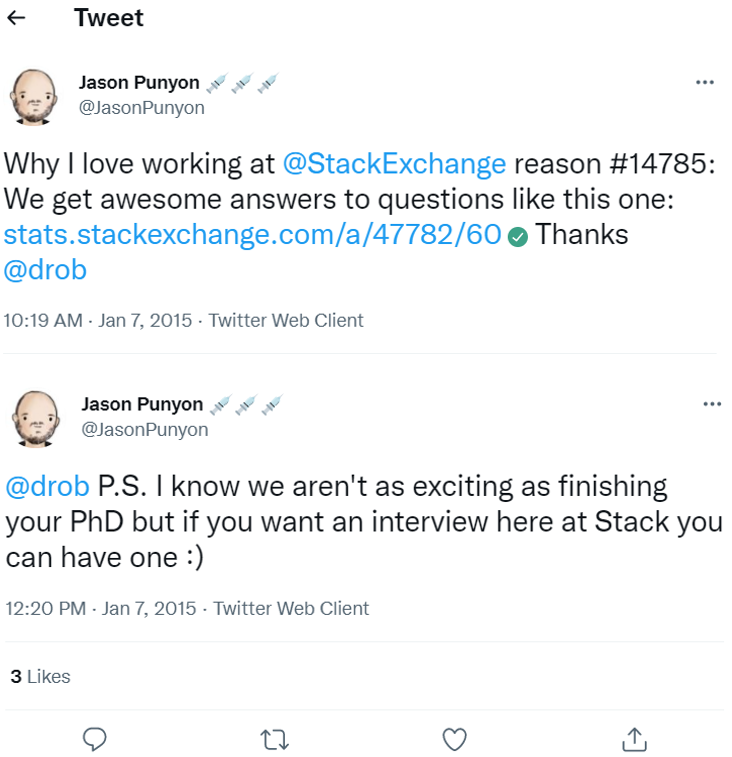The How to Get an Analytics Job podcast had Michael Galarnyk share his tips on building a superstar portfolio to land and succeed in an interview.
Michael currently works in a developer relations role at Anyscale where he creates technical content around distributed computing, serverless computing, and machine learning. Previously, Michael was a Data Scientist at Scripps Research and has a background in teaching courses at Stanford Continuing Studies, UC San Diego, LinkedIn Learning, and YouTube.
Michael defines a portfolio as public evidence of your data analytics or data science skills. Emphasis on the public aspect. Lots of people own some sort of social media account, Facebook, Pinterest, Instagram, Snapchat, among others. We use these to socialize and share aspects of our lives we want others to see. A portfolio is similar in a sense; however, you share your skills and accomplishments for professional purposes. Some of the social skills used in running your social media accounts overlap with professional portfolios. Michael encourages people today to make a professional online presence.
“The biggest goal of building a portfolio is to show people what you can do instead of just telling them you can do something”
A person hiring for a role will perceive you as more authentic if you have tangible proof of work that shows your abilities. Having the ability to show this authenticity is more essential than ever today with thousands of people applying to the same role. One of the main purposes of having a portfolio is that it can help you get interviews. You can share a portfolio on your resume and vice versa, someone can find pieces of your portfolio that lead to your resume and help you land an interview.
Your portfolio can also be a vessel for networking. If one of your tableau visualizations or a blog post about your analysis gets a lot of traction it can lead to conversations with people who have similar interests to yours and may be able to help you with a referral in the future.
A portfolio can also help you during your interviews. A lot of interviews for data analytics or data science positions have questions about specific steps you would take solving a problem with data and increasingly interviews now include take-home challenges. Often, you can reference your portfolio work to help you answer their questions during an interview. Additionally, those take-home challenges could be similar to portfolio projects that you’ve built in the past and they could help you with a framework on solving that take-home challenge.
To summarize the different ways a portfolio can be beneficial for your professional journey
- Show people what you can do instead of telling them you can do something
- Help you get interviews
- Networking
- Help you during interviews (and take-home challenges)
“it’s absolutely game-changing… I’ve really gotten quite a few my jobs actually through my portfolio”
A portfolio can contain different types of content and having more than one type of work is best for achieving maximum exposure. Some of the types of content a portfolio could contain are:
tableau public
blog posts
Stack Overflow
GitHub
Kaggle
Podcast appearances
These are all opportunities for people to find you and for you to meet people and grow your network. Michael gave the example of a quote by David Robertson, the principal data scientist at Heap.
“The more public work you do, the higher the chance of a freak accident like that: of someone noticing your work and pointing you towards a job opportunity, or of someone who’s interviewing you having heard of you’ve done.” – David Robertson
David got his start at Stack Overflow after someone at Stack Overflow read his response to a question and thought it was great. Below is that exchange

These sorts of occurrences, where someone sees you contributing to a community, or a project and reaches out, are more common than you’d think. The more you put out there the more likely you are to impress someone that could offer you an interview.
“it’s not just you applying for jobs, sometimes people can come to you for a job which is very powerful” – Michael Galarnyk
Link to watch the full interview on the How to Get an Analytics Job YouTube channel:
